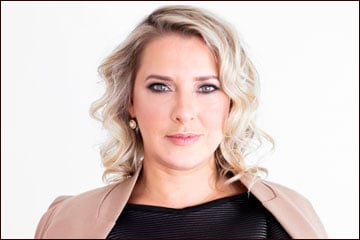As of Monday, June 17, brand owners filing trademark applications will be paying more, as the amended Trade-marks Act and the new Trademarks Regulations come into force.

As of Monday, June 17, brand owners filing trademark applications will be paying more, as the amended Trade-marks Act and the new Trademarks Regulations come into force.
At present, to file a trademark application, “regardless of the number of goods and services, regardless of the number of classes,” the fee is $250, says Janet Fuhrer of Ridout & Maybee LLP in Ottawa. As of Monday, she says, the base fee will be $330 for one class of goods and services and $100 for each additional class of services.
That’s assuming the application is filed electronically; by paper, the fee will be $430. A trademark that’s associated with a number of goods and services and falls into several classes will result in registration fees that are much higher than currently.
“Clients want to get their applications filed before June 17,” says Ashlee Froese of Froese Law in Toronto. “Right now, you can put everything but the kitchen sink in under one government filing fee.” That won’t last.
The changes coming into effect on Monday are intended to modernize Canada's intellectual property framework in order to join five international IP treaties, including the Madrid Protocol, Singapore Treaty and Nice Agreement, all related to trademarks. Canada’s new Trademarks Regulations were published in November, and Canada deposited a succession instrument with the World Intellectual Property Organization on March 17, says Fuhrer. After a three-month waiting period, the implementations will take place.
Another change will be the length of time before certificates of registration must be renewed, and Fuhrer says she is seeing clients rushing “to get certificates of registration issued before June 17th.” Currently, a Canadian trademark registration is valid for 15 years, but as of Monday, the period before a certificate of registration must be renewed will be reduced to 10 years, says Fuhrer. The renewal fee will increase as well, to $400 from $350 for one class only and $125 for each additional class, she adds.
“That’s just in government fees,” Fuhrer says. From the IP practitioners’ side, “we all have been scrambling to figure out what our fees should be to take [the changes] into account.” Preparing a trademark application where there are many goods and services associated with the brand is now more complex, as they must now be classified according to the Nice Agreement, an international treaty administered by WIPO. The Nice Classification, which was established by an international agreement in 1957, now defines (as of 2000) 45 classes of goods and services: 34 for goods and 11 for services.
“Canada has been one of the holdout countries for many years in terms of joining this treaty,” Fuhrer says.
Froese is concerned that the removal of the “use” requirement from the Trade-marks Act will bring more trolls out of the woodwork. The removal of “use” as a requirement for trademark registration will mean that “any party wanting to file in Canada could get the registration for a trademark whether or not they want to use the mark” or have used it in the past, she says, resulting in “brand trolls” squeezing out legitimate brand owners, who will have to be more proactive in terms of guarding their brands.
“From the legal profession standpoint, there’ll be more monitoring and opposition work” to trademark use and registration, says Froese.
And applications for trademark registration are taking longer to process now, Fuhrer says, as the government ramps up for the new requirements that will bring Canada in line with the Madrid Protocol. Now, she says, a trademark applicant is looking at 18 to 24 months on average for registration to be completed, including a period of 12 to 14 months before an application is reviewed by a trademark examiner. However, she says, the Canadian Intellectual Property Office “is hiring and training more examiners and preparing for the backlog” that compliance with the Madrid Protocol will bring.
Still, it may be a matter of “hurry up and wait” for trademark applicants pushing to get their applications in before Monday to avoid higher fees. Froese says that, although she’s been issuing notifications to her clients, “they haven’t really paid attention until I’ve said, ‘Next week is the deadline!’”










